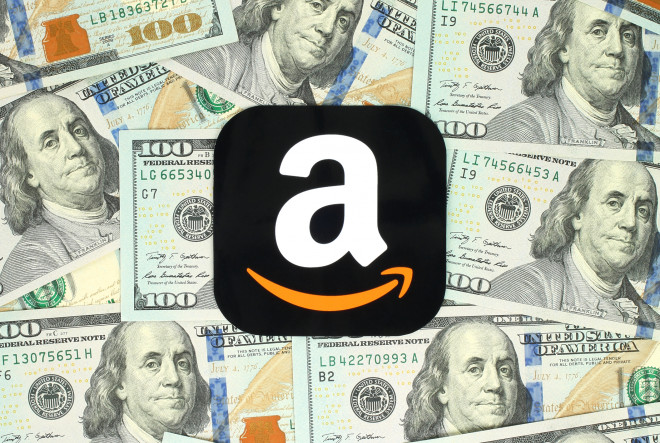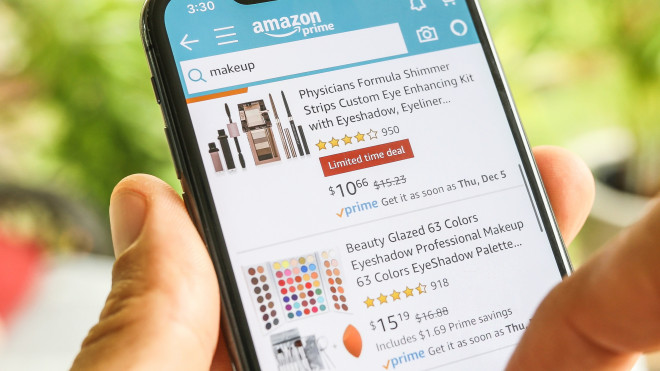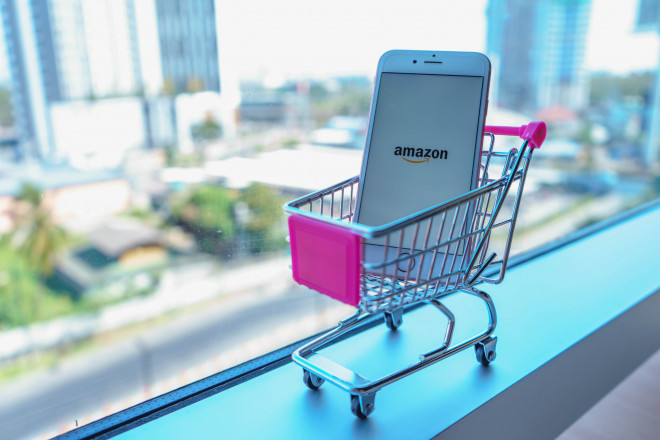I was recently looking for a new Bluetooth speaker to add proper sound to the upcoming balcony season. I have little expertise in this area so I looked around the Internet and did some research. I quickly chanced upon a product with reviews that promised "unmatched rich basses", "crystal-clear highs", "incredible runtime" and that was lauded as the "perfect companion for every party". These were either highly enthusiastic customers–or fake reviews. Amazon just recently sued two companies that sell phony reviews on a large scale.

Perhaps you remember the times when the vacuum salesman rang, only to inundate you with lofty superlatives that, more often than not, motivated you to pay a bundle for a dubious product. Today, we like to think we're smarter as we rely on, wildly abundant, online ratings and (video) reviews before we make a purchase. But we tend to forget that dispassionate factual reviews are usually hidden behind paywalls. Those who love to share their opinions freely may not always have our best interest at heart. Many sites simply sell their ratings to the highest bidder, act as intermediaries through affiliates, or publish rave reviews against payment or the promise to keep the product, as is often the case with reviews on Amazon and similar sites.
Have you heard of AppSally or Rebatest? Unless you're a professional Amazon, eBay or Etsy seller, with a tendency for fraud, chances are you've never heard of them. These two companies provide services that blatantly offend against the terms (and integrity) of any credible store: They sell ratings across platforms–and continents. It's the "perfect growth weapon for your business" (AppSally)–and it's out there in the open and couched in professional jargon that somewhat inspires legal confidence. Jubilant customer ratings, a professional support staff, and a free ebook further cement the feeling that these companies consider their business model 100% legal and legitimate.
 More stars, more sales
More stars, more sales
Amazon begs to differ and has recently begun cracking down hard on the people, and companies, behind fake reviews and ratings. They report that, every day, a staff of 10,000 people are browsing billions of reviews in tandem with smart algorithms to hunt down fakes. Amazon even has a dedicated department for customer trust that even pursues fakers to Facebook and Telegram groups. 16,000 of these groups were reported and dissolved in 2021, they say, affecting a total of 11,000,000 members. These figures give you an idea of the scope of the fraud–and the number of people willing to sell fake reviews. Internationally, AppSally and Rebatest alone supposedly have over 900,000 "authors" working for them, and these two are just the tip of the iceberg. If you let these figures sink in for a moment, you'll start seeing online reviews in a different light, I promise. I wonder whether regular reviewers genuinely feel the enthusiasm and excitement over laundry baskets, can openers, or white LED candles that their reviews often exuberate.
Amazon claims to have deleted 200 million reviews in 2020 before they went public. But what can they do when fakers play it smart and not use pre-packaged phrases? Sellers frequently go the extra mile and have "customers" order products through a middleman free of charge. This registers as a verified purchase at Amazon and is automatically afforded the benefit of the doubt. The recipients then write puff pieces and often get to keep the items. In some cases, empty boxes are shipped and reviewers are instead paid in money or vouchers. Naturally, these "customers" also receive instructions on how to structure their reviews. Self-produced photos work best and common advertising slogans and phrases are to be avoided. The icing on the cake is usually a minor nitpick that doesn't mar the overall positive picture but demonstrates diligence and authenticity. Overused phrases like "my wife loves it too so we ordered another" are no longer recommended. How can Amazon detect these fine-crafted but phony reviews? My guess is they only catch the small fry that still relies on clumsy and suspicious wordings and (must) ignore the rest– the part that more or less influences all of our buying decisions.
 Trust affects our shopping cart
Trust affects our shopping cart
Still, Amazon is now taking two infamous black sheep to court, along with their loyal business customers. Recently, two online store owners accused of having been involved in 250 fake reviews lost their accounts . They had already been given prior warning but had taken legal action. A German court ruled in their favor, because Amazon's reasoning was deemed invalid, but Amazon can still appeal or sue for an injunction. The company has already announced it will keep fighting and take proper legal action, not just to rectify the decision but also to intensify the struggle against anti-consumerist behavior supported by fake reviews and their facilitators. Since Amazon's war chest is certainly well-stocked, it's reasonable to assume that we'll likely see many more lawsuits in the future–many of which will turn out in their favor. Fingers crossed! Right now, Amazon is going for an injunction and access to AppSally's and Rebatest's order books with data on their customers, i.e. stores powered by fake reviews. Let's see how long it will take for these shandy businesses, and business models, to falter. Most customers would certainly appreciate it if they did!
What I would like to know: Do reviews play a role in your buying decisions or have you generally lost faith in them?




I do look at reviews to a limited extent. However, when I am seriously interested in a product I look at the Negative Reviews/Comments to see what kind of difficulties are reported And, most importantly, I look to see how the seller Responds to those Negative Reports.ksh
An Amazon product recently received a question about its reviews not corresponding to the product described. I offered the following answer about my experience: "A different product I was interested in claimed 150 reviews. But only TWO of those were clearly for that product; 129 were clearly not for that product; 19 were too vague to tell what product they were about. How common is this on Amazon? Maybe we must always read most of the reviews if we're depending on "customers'" ratings to choose a product."
Yes, reviews are instrumental in making purchasing decisions, but filtering and preventing review scams must be addressed and prevented by Amazon, not its customers. Marketing distortions may otherwise undermine the integrity of reviews and lead to consumer distrust of the veracity of reviews for information about product observations.
A couple other problems are items received damaged during shipping. Accidents occasionally happen that could bend a three-foot length of railroad track. Blaming the manufacturer or seller skews review statistics regarding products and suppliers. Random emotional venting and a persecution complex are irrational reflections of events, not products and services dissatisfaction.
Contrarily, are raves about perceived potential or nice packaging, but not inspection and use of an item, are not objective consumer issues for durability, functionality, characteristics, or benefits. Often, feedback is solicited before items are even used by the purchaser, inviting superficial guesswork or "it looks enjoyable in the can or box, so it's great at this point, love it". I have a conspiracy theory that people generally believe they made a good choice and voted with their dollars. One review is never sufficient, so read on. Did a good deal of them fail to start, or is it necessary for Bob to push a second button first? Duh?
Not much. I tend to ignore mega reviews. I have had a couple of problems with even "name" brands, so it's pretty much a turkey shoot with me. I research to see what I like and what I don't and then pay attention to the item's description, but have even been taken in on a couple. But I don't have much disposible income, so I am pretty limited.
Not much since I read your blog 900,000 fake reviews for a perfect rating.
In the 70s, I was one of those vacuum cleaner salesmen. I sold one to what seemed like a poor family - the old man was in his underpants during the sale - and later I felt so bad that I had to take his money back. But during that recession, we salesmen were not even paid in cash. We were paid in voucher for gasoline (there was a serious shortage) and household items. Watching the prices of gas going up, I would say some of the most despicable hucksters selling lies today are our politicians. "Everything's wonderful!" "Gas is going down!" "Free disease test kits and crack pipes." "Interest rates (inflation) is up! Good for you!"
This article is key...meaning it not only details a modern toss on an OG pyramid scheme but also begs a direction that Ashampoo should go in the future, that is, adding to some of it software, a subscript/utilitie that flags (not condemns) "reviews" from a list of paid review companies.
Thanks
NR
San Diego CA
Most of the time I ignore reviews except for the negative ones. However, you even have to be cautious with the negative ones because they may be from paid reviewers for rival companies. The best reviews are from totally unbiased reviews like Consumer Reports. Reviews have generally just one more type of "fake news."
Good to know! I do make choices on Amazon when I'm on-the-fence based on customer reviews and have ended up sending products back because they're junk.
I generally ignore the positives. I read the negatives, although many of them sound like sour grapes, maybe false, too. What better way to redirect potential customers than by faking negatives on your competitors' websites. Gotta apply the rule: If it sounds too good to be true, walk from it.
I do still check reviews, but I look at the 1 star reviews, they tend to be much more honest.
I read reviews with a critical eye. When I see endless, abundant praise I generally assume it was written by an AI bot using a thesaurus. Often I notice near carbon copy reviews with different, similar superlatives with one or two sentences in a different order and I move on because I realize this seller is a phony and their products are likely as worthless as they are.
I use the negative comments more than I use the positive comments for exactly this reason. I figure if someone is bashing a product then most likely they have purchased it and the review is true and tried.
There's always Fakespot and Review Meta, but even then sometimes the results between the two are blatantly different. I hope in the future they can get a better handle on policing the fake reviews.
That is exactly why I always read the 1 and 2 star reviews first. That gives me a better idea of the true value of the item. If the 1% star rating is above 4% I hesitate a long time, then don't order.
I read the reviews, but I pay a lot more attention to the negative reviews as I suppose they are more genuine.
I still tend to rely on reviews but read them carefully. What else do I have?
I partially rely on ratings and reviews, but I do my research. I take them with a grain of salt, I look at other similar products and websites, etc. Sometimes, if something looks suspicious, and I'm really interested in the item, I'll try to look up info about the seller.
It's ridiculous that you can't even buy a product on a legitimate site without worrying about getting ripped off!
I generally read the negative reviews first and then make up my mind.
It's similar to games reviews (or any review) in the press - the press get freebies from production companies and if they give a bad review the freebies stop. You can get a better idea from the player reviews on Steam.
The problem with online shopping is that you don't know what you're actually getting until you get it, a problem which we in Trinidad call "Buying a cat in a bag". Unfortunately, we therefore have little choice but to reluctantly place more faith in reviews than we wish to. One technique I use, is that if there is wild disparity between positive and negative reviews for a product, that's a red flag.
Are there also fake bad reviews, perhaps by companies or individuals? I usually check the one, two and three star reviews to see negative comments, but perhaps they are also fake
If the review is fake, you can always return the item and provide a true review.
I'm an Amazon customer going back to when they were mainly an online book store. How things have changed. I leave reviews, but nowhere as often as I use to. Up until a year or two ago, you were allowed to leave comments on reviews. That way you can question the reviewer's opinions. Ask for more detailed information, or just tell them you believe their review to be bogus. I think that stopped a lot of the fake reviews or informed other potential buyers to be cautioned. Amazon no longer allows comments on the reviews, and I think there are more fake reviews now.
No, I seldom ever read reviews. There are other ways to research an item one is interested in purchasing. Reviews are like comments on Facebook, et al, some love some hate and nothing is gained by reading them.
I check reviews for items I might buy online but have learned to take them with a grain of salt. I tend to take negative reviews where someone can point out a specific deficiency in the product more seriously but of course those could be fake too. Reviews which only express accolades ("Wonderful!") or condemnation ("Terrible!") with nothing to back it up are worthless. On a side note, I recently ordered two items from Amazon (a web camera and a USB disk docking station) and both vendors included a note asking me to provide a favorable rating on Amazon. I found that a bit offensive and will not bother to review either product.